The world last week: Struggling to solve the Corona epidemic crisis
(Baonghean) - With the spread of the acute pneumonia epidemic caused by the new strain of Corona virus (nCoV), Chinese people are facing a severe shortage of masks and medical supplies. The relationship between Russia and Türkiye is being pushed into turmoil, as the situation in the northwest region of Syria is complicated. These are the notable international issues of the past week.
"Thirst" for anti-nCoV masks
Face mask shelves across China have been stripped bare as people rushed to buy them despite skyrocketing prices. Panic buying and hospital calls for donations of masks have highlighted the severe shortage of masks in China, as the World Health Organization (WHO) declared the spread of the novel coronavirus (2019-nCoV) a global health emergency.
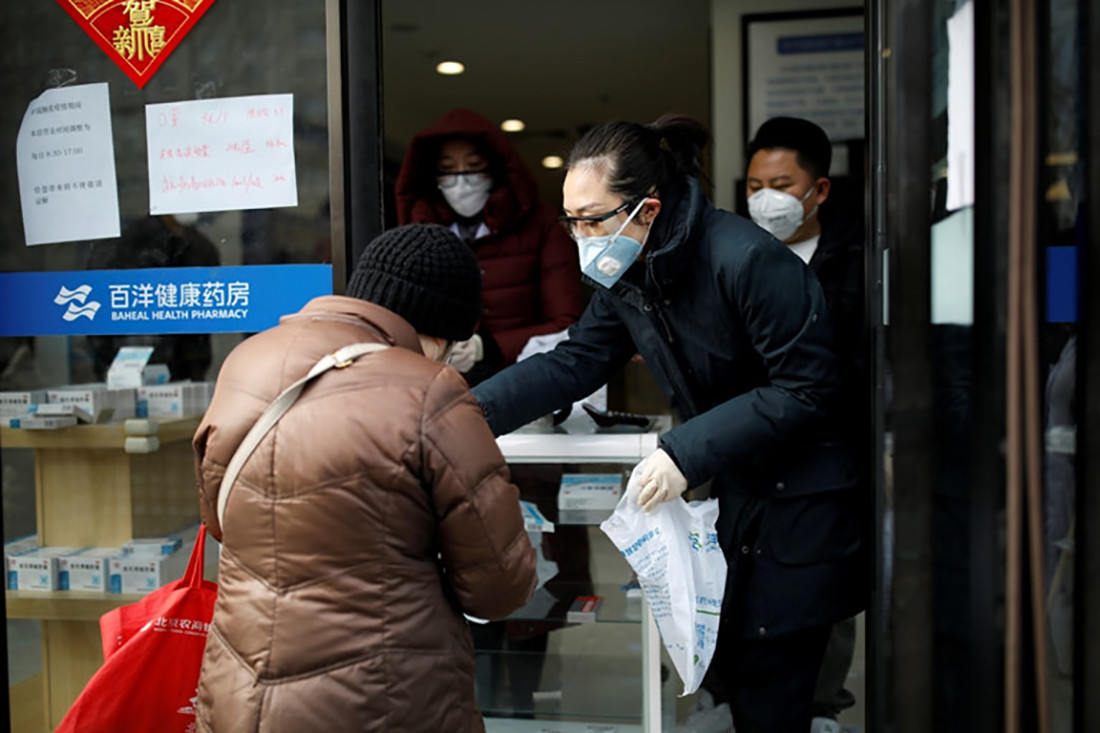 |
| Employees wearing masks and protective glasses serve customers at a pharmacy in Beijing, China on February 3. Photo: Reuters |
With the number of deaths from nCoV 2019 reaching record highs day by day, week by week, masks have become an "inseparable" item for people across China. In addition to Hubei province - the epicenter of the epidemic, some local authorities such as Guangzhou and Sichuan have ordered people to wear masks in public places.
In Shanghai, mask sales jumped from about 10,000 a day to 3 million during the Lunar New Year holiday. China has the capacity to produce 20 million masks a day, and medical equipment factories are operating at 60% capacity at the moment, according to authorities. However, manufacturers can only make about 600,000 N95 masks, which can block 95% of fine dust particles. Mask supply has been complicated by many localities extending the Lunar New Year holiday and imposing travel restrictions to prevent the spread of the disease, meaning many workers have been unable to return to factories to produce masks, causing production lines to stall.
Meanwhile, some factories are running at full capacity around the clock. Shanghai Dasheng Medical Products Company said it would double its daily output to 200,000 units within 10 days. Many companies said the government is monitoring production. According to the Center for Information and Technology Industry Development (CCID), China produced 50 billion masks last year, more than half of which were used in the medical sector. CCID said China's production capacity is sufficient to meet the demand to prevent the spread of nCoV 2019, and the current shortage is due to factories not operating at full speed due to the extended Lunar New Year holiday.
 |
| Workers focus on producing masks at a factory in Fujian province (China). Photo: Xinhua |
China has now halted exports of materials and equipment used to produce masks to several countries, including South Korea and Vietnam, disrupting supply chains amid the pandemic’s threat to spread globally. Beijing is also sourcing masks from abroad. China’s customs agency said that between January 24 and February 2, the country imported 220 million masks.
The "thirst" for masks has caused anxiety and panic in the community, but frontline medical staff in the fight against n-CoV 2019 are the ones at the highest risk.
The World Medical Association (WMA) has called on governments and the WHO to urgently diversify international supply chains to support Chinese medical professionals with medicines and medical supplies. China's Foreign Ministry said on February 3 that what the country urgently needs now are masks, gowns and goggles. Currently, countries such as South Korea, Japan, Kazakhstan and Hungary have donated medical supplies to Beijing. Major public hospitals in busy cities such as Beijing, Chengdu, Chongqing, Guangdong and Shenzhen have called on people to donate items such as masks and disinfectant sprayers. The central government has also sent more than 150,000 sets of medical protective clothing to Hubei Province.
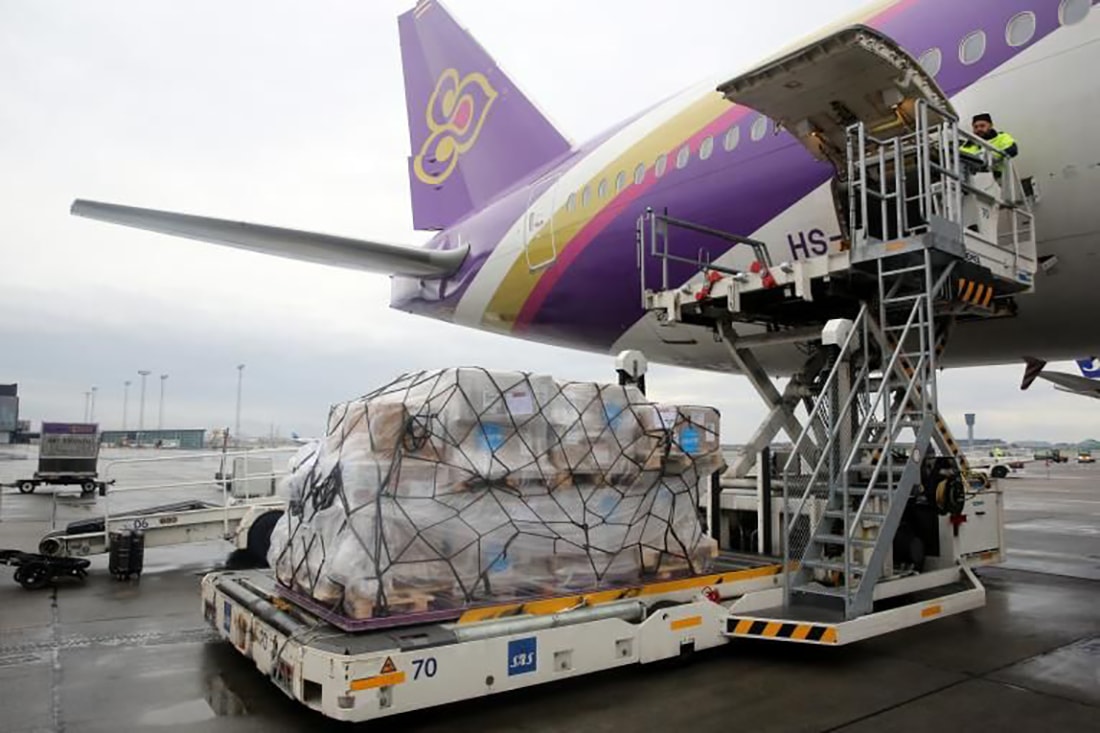 |
| A six-ton shipment of UNICEF respiratory masks and protective suits has arrived in Wuhan, supporting China in its fight against the novel coronavirus pandemic. Photo: UNICEF |
Turmoil in Russia-Turkey relations
In the nine-year civil war in Syria, both Russia and Türkiye have a military presence, working together to prevent bloodshed, and have recently strengthened their defense relationship. However, recent tensions have created challenges for the fragile cooperation between the two countries.
Tensions in Idlib have been going on for more than two months, although Moscow and Ankara have been talking at many different levels, the joy of reconciliation has not been "just a piece of iron". The climax was the direct military clash between the Russian-backed Syrian government forces and Türkiye in Idlib earlier this week. The attack by the Syrian army killed eight Turkish military personnel, putting Moscow-Ankara relations in the biggest challenge since the ceasefire agreement between the two sides in the northwestern region of Idlib province, Syria in 2018.
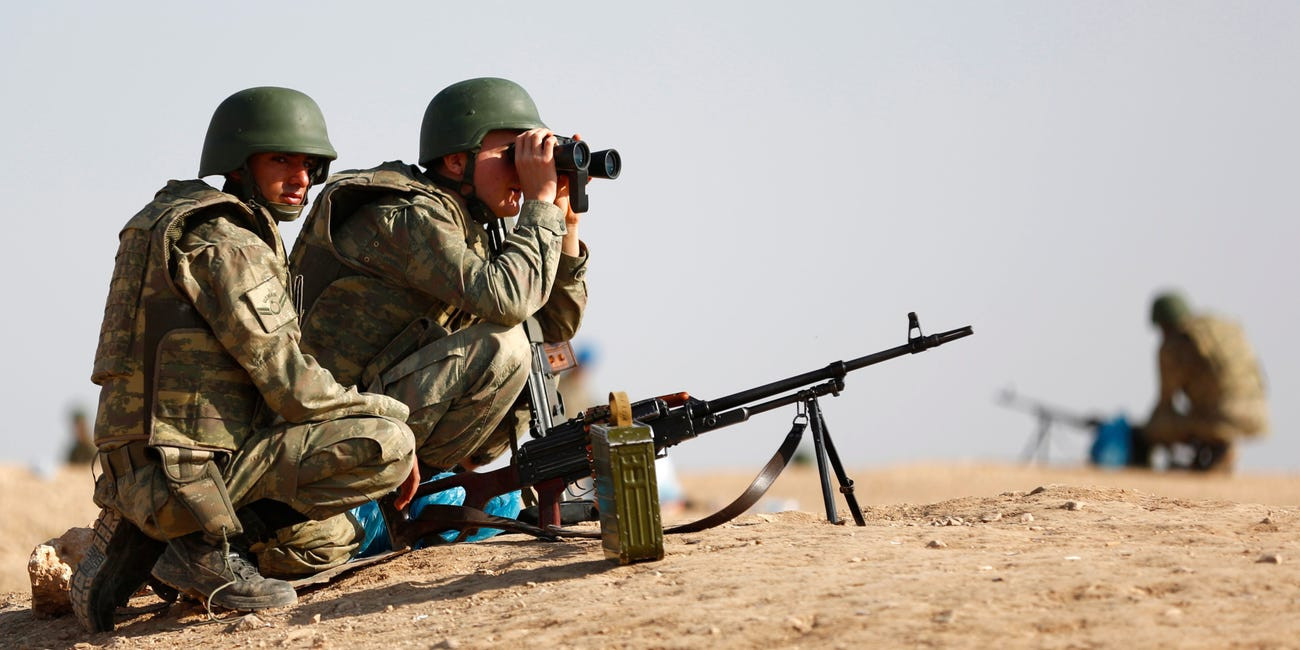 |
| Syrian soldiers fight. Photo: Reuters |
In the most recent phone call, President Tayyip Erdogan warned that he would respond in the harshest way if the Syrian army continued its military operations, violating the de-escalation agreement signed by Russia and Turkey. And of course, Mr. Erdogan also did not forget to warn about the division in the Russia-Turkey relationship because of Syria.
Now, blood is being spilled on both sides. Assad’s forces have intensified attacks on Turkish bases in Idlib, killing scores of Turkish soldiers. Russia has also reported casualties from attacks launched from Turkish positions. Hundreds of Syrians, including soldiers and civilians, have been killed in the escalating fighting, and tens of thousands have been forced to flee the area. David Swanson, the UN spokesman for Syria, said 520,000 people have been displaced since the beginning of December 2019, and the number will continue to rise.
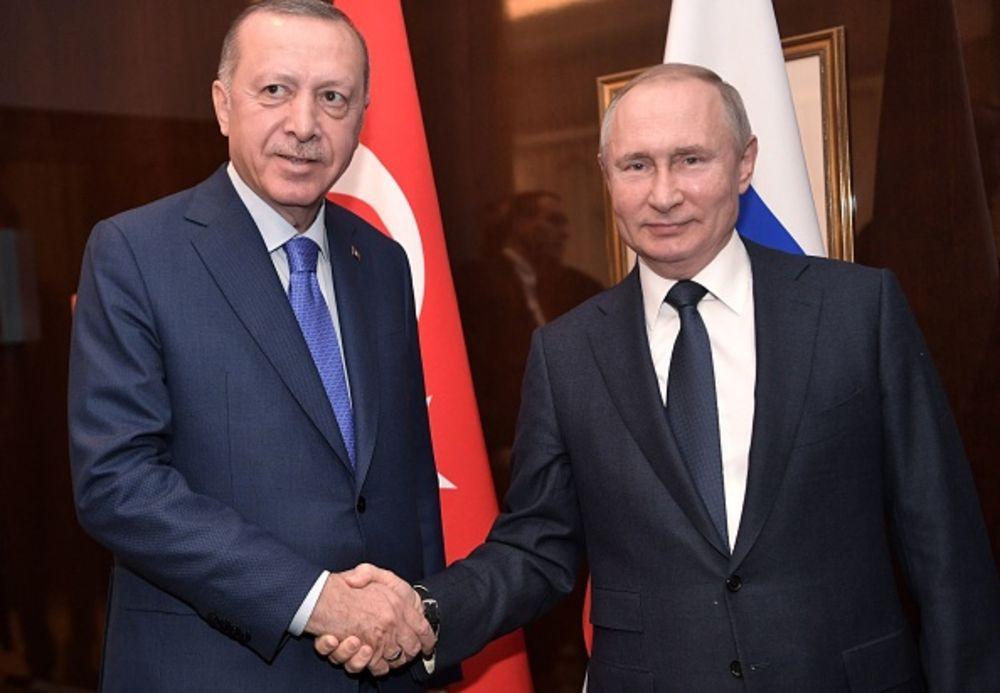 |
| Turkish President (left) and Russian President shake hands warmly to affirm warm relations. Photo: AFP |
Analysts say the Russia-Turkey relationship should survive the “magic spell.” In the current context, the options for President Putin and his counterpart Erdogan are limited. For Russia, Türkiye has the potential to be a major economic partner. The two leaders want to increase bilateral trade, which currently stands at $30 billion, to $100 billion. Moreover, Turkey plays an important role for Russia in maintaining multilateral organizations in the Caucasus and Central Asia.
“Developments like this do not lead to a permanent breakup between Moscow and Ankara. They will find ways to overcome this, as both sides continue to rely on each other to prevent the situation from escalating in Idlib.”
Turkish security officials said Ankara has no plans to withdraw its military forces from 12 observation posts in the area, although two are currently surrounded by Syrian government forces. Meanwhile, Russian Foreign Minister Sergei Lavrov said that Russia cannot solve the problem unilaterally, but can continue to try to reach the conditions under the existing agreement on Idlib with a sincere attitude. President Erdogan said that Turkey does not need to engage in a serious conflict or conflict with Russia at this stage. "Of course, we will sit down and discuss everything, not with anger. Because those who sit down with anger, when they stand up, they will leave with losses," the Turkish leader said.
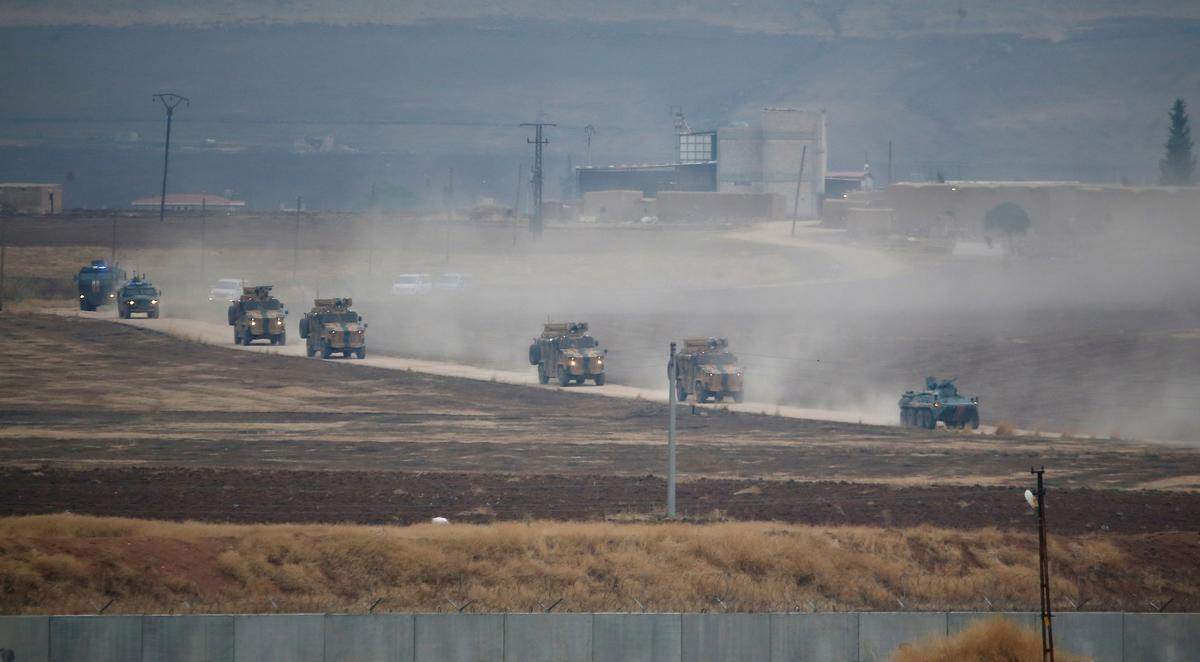 |
| Russian and Turkish military vehicles participate in a joint patrol in Syria. Photo: Reuters |
The recent clashes between Russian-backed Syrian government forces in Idlib have clearly shown the limits of Russian-Turkish cooperation in the Middle East. Konstantin Kosachev, a senior Russian lawmaker, called the intensifying fighting a test of the strength of the Russian-Turkish agreements in Idlib in general and the entire northeastern Syria in particular.

